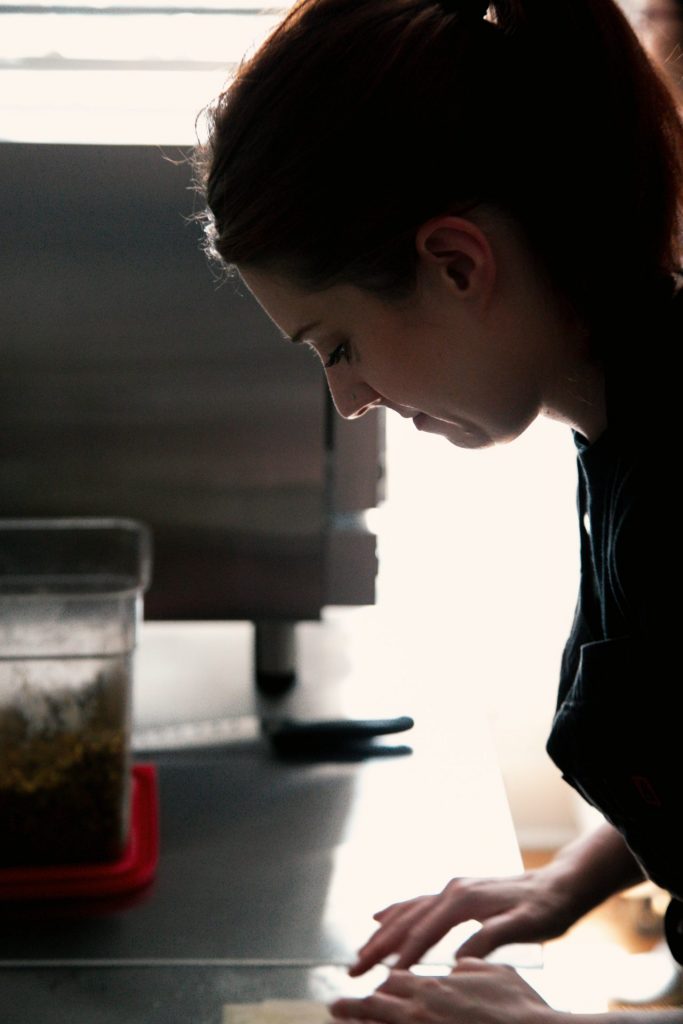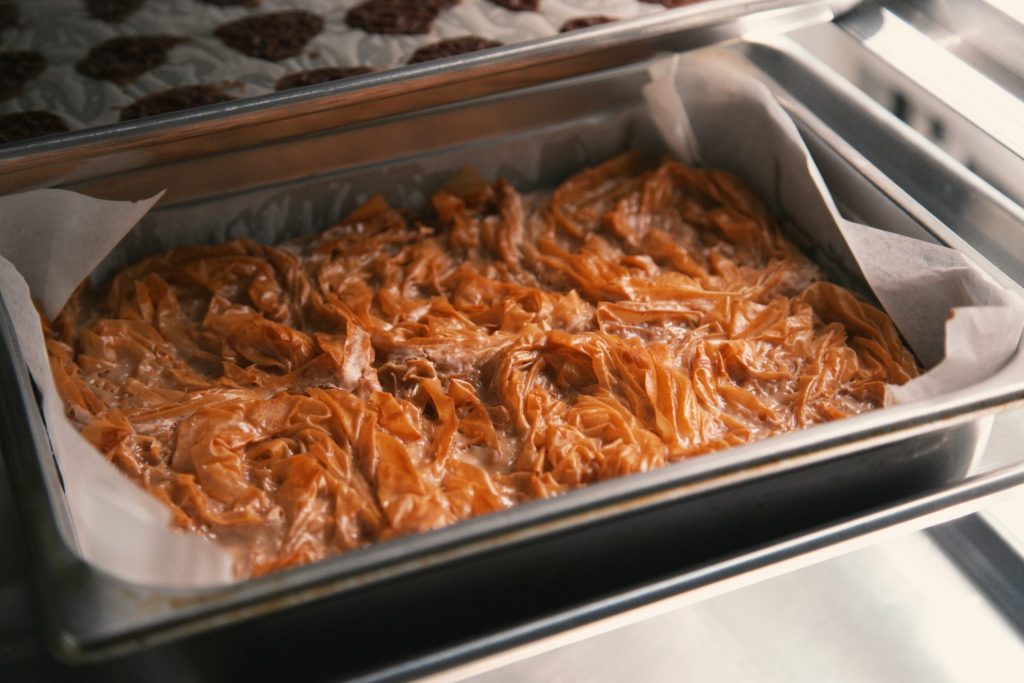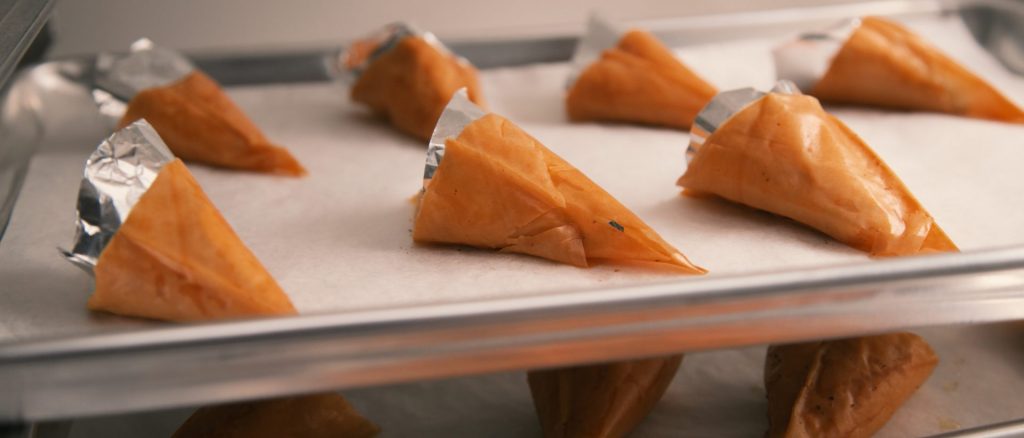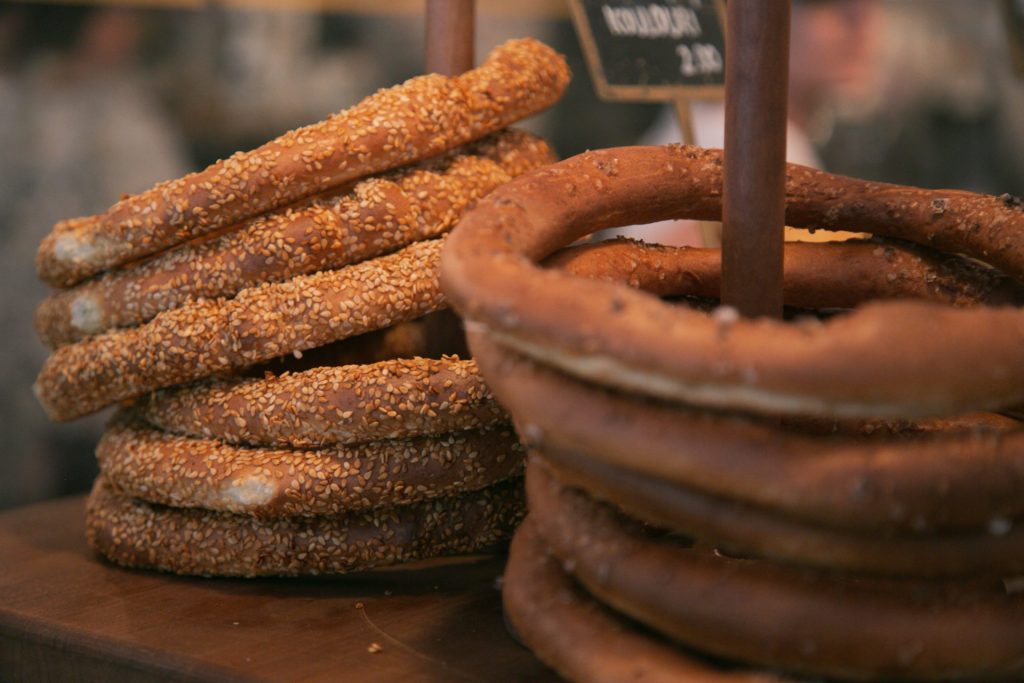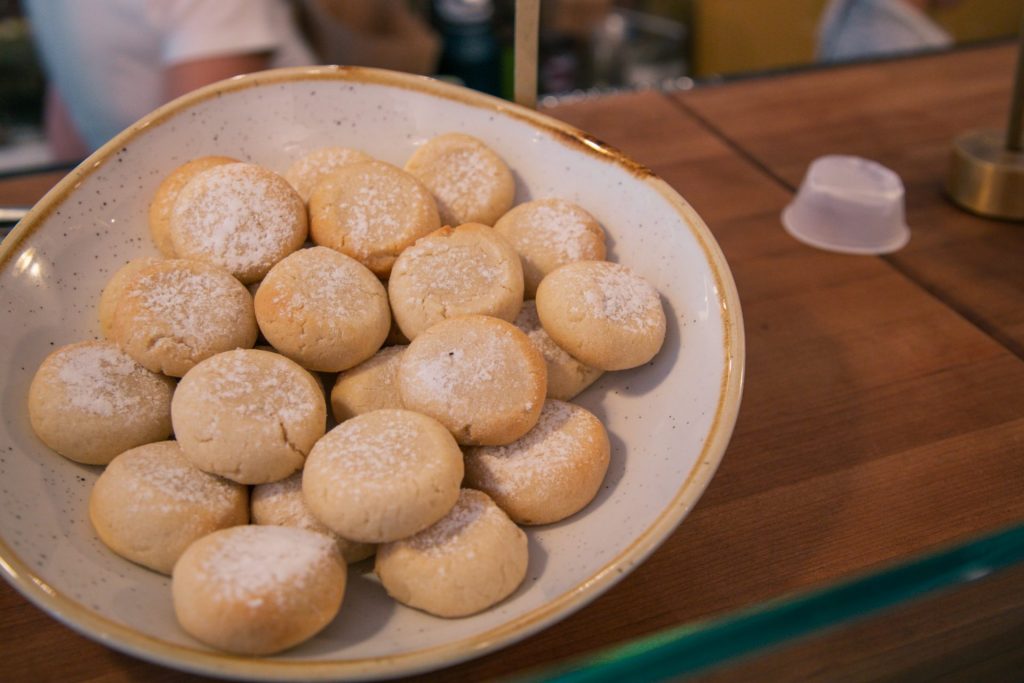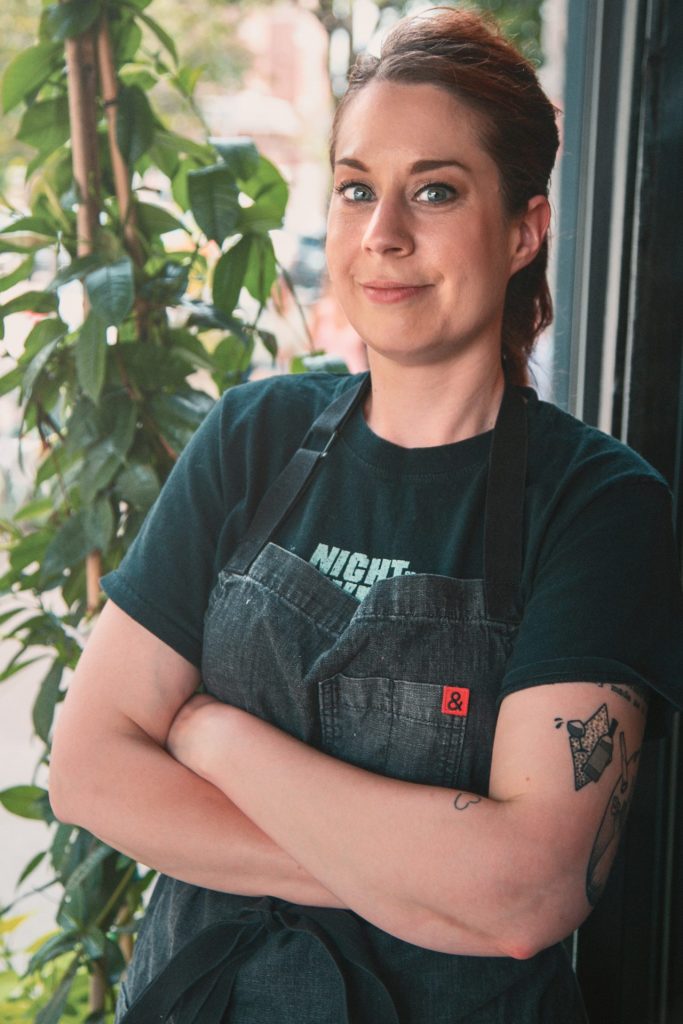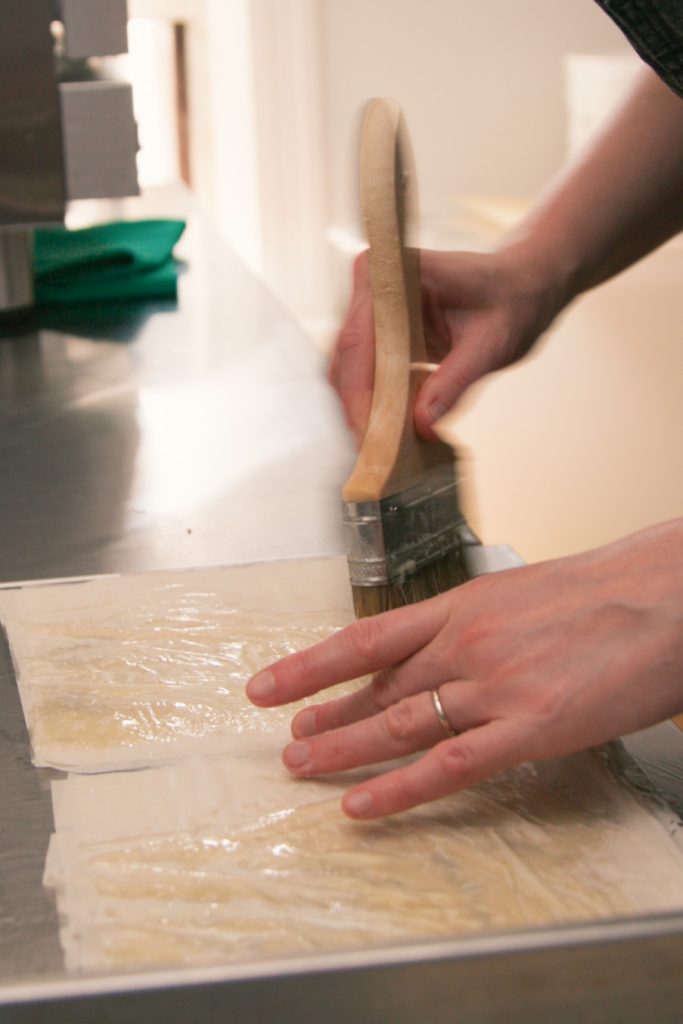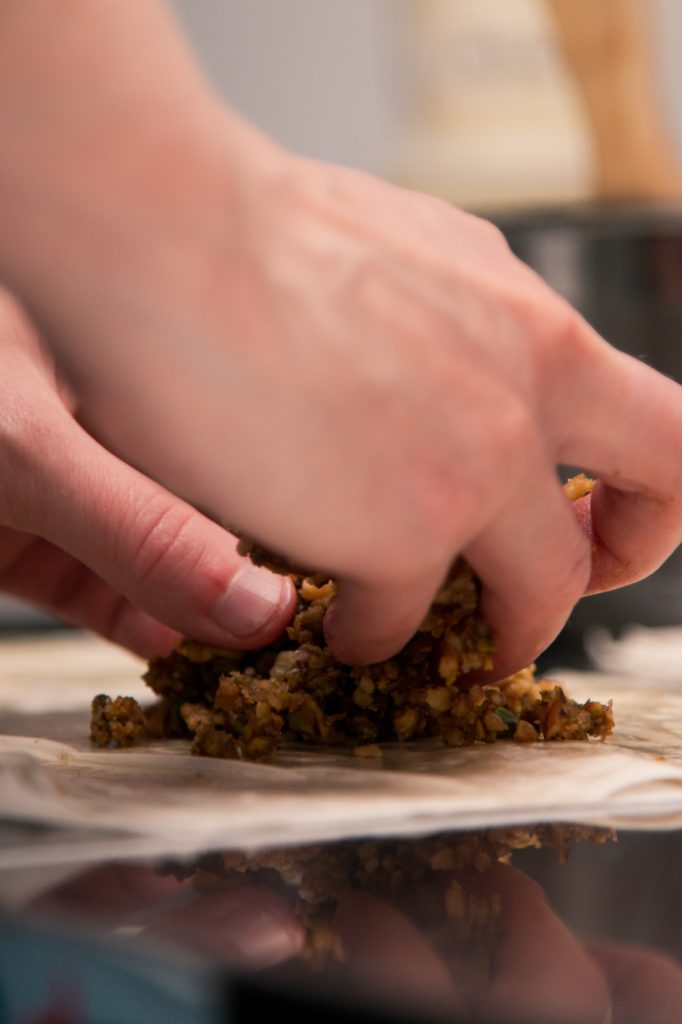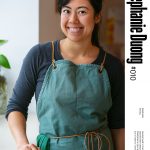Cora James
Cora gave up on her dream of becoming a ninja. Today, she creates killer desserts, and has some serious fun along the way.
Before jumping into food with Cora James, Executive Pastry Chef of Agora and Mamakas, we were determined to get this interview started on a slightly different note. We wanted something fresh to break the ice, and so we asked a few of our foodie friends pre-interview for some tips.
Fortunately for us, it turns out that Ashley of Glory Hole Doughnuts (who you might remember from issue #5) is a good friend of Cora, and she offered a wonderful suggestion. We discussed it between ourselves, and then it was decided. We had it. Our tantalizing first question. The gossip was spilled, the stage was set.
“So Cora…can you tell us about your ninja tattoo?”
We asked with slight trepidation, amid fear of sounding creepy. But she answered enthusiastically, with only a short surprised pause. She told us the story of the tattoo on her back, showing three ninjas climbing a rope. The ninjas represent herself, her brother, and her sister, and they are an ode to when she would play “ninja” with her siblings as a child. There are two ninjas near the top of the rope, and another one at the bottom eating a chicken drumstick. “It’s kind of awful, but that’s my sister”, she explained, referencing how she and her brother would poke fun at their younger sibling.
From those childhood games, she had always maintained that she would one day become a professional ninja. But having worked out that probably wasn’t a viable career, she settled for a mere tattoo and a career in cooking.
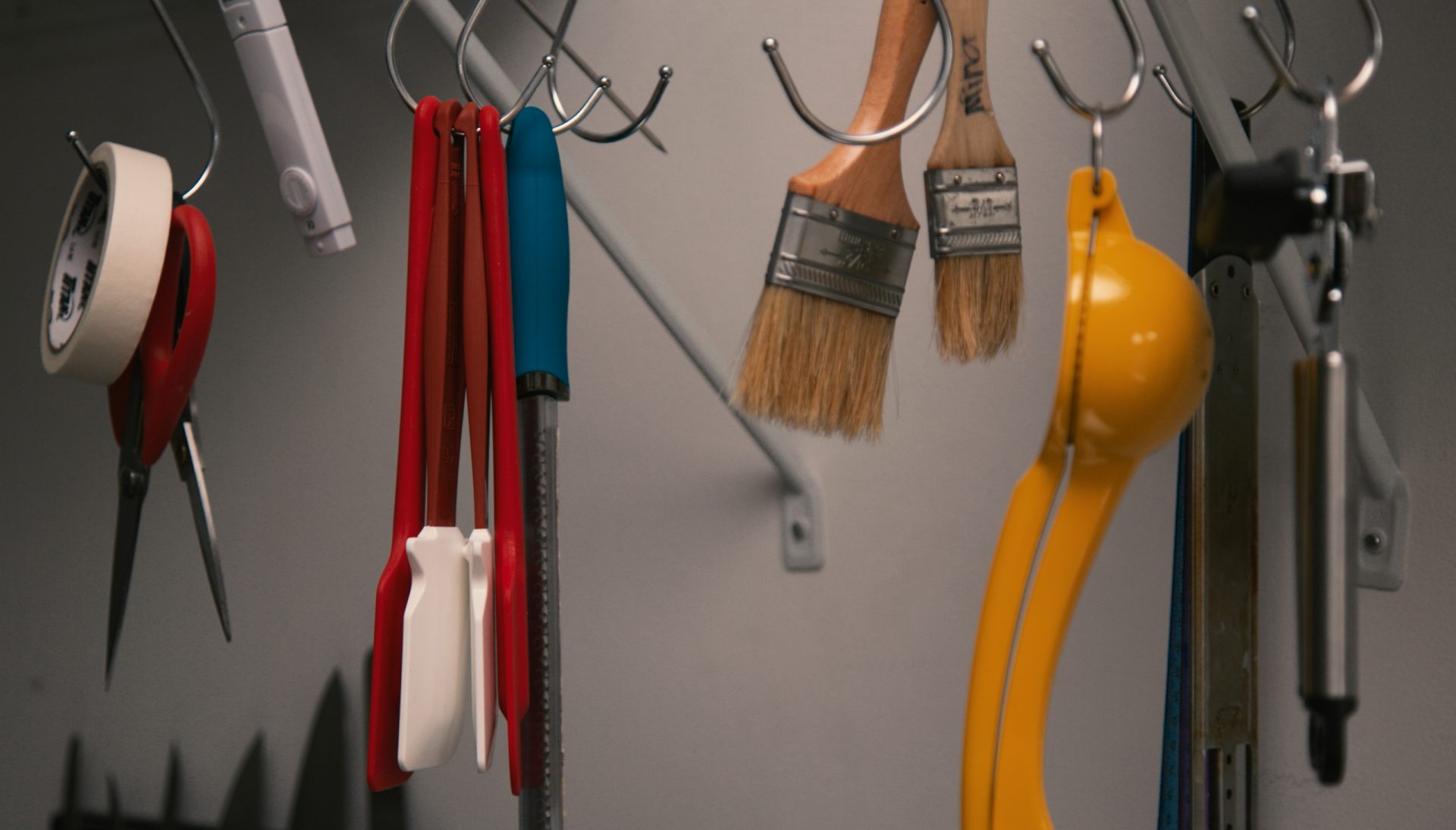
And so, we found ourselves sitting with Cora the pastry chef, and the ice was broken. With the hard hitting stuff out of the way, we could get down to the smaller issue of her culinary career. We kicked things off by asking about her actual profession (spoiler alert: still not a ninja), and how she got into what she does.
“I’ve been a pastry chef for 13 years. I think my story is pretty similar to a lot of people who get into more creative professions…I started off going to university and trying to pursue a more academic career and lifestyle, thinking that’s what I’m going to do. I was an English Literature major…[and] I was convinced I was going to go off and do academia in some way.”
Well, as we already know, academia was not the route she chose. In the last year of her bachelor’s degree, she found herself frustrated with the academic work environment, and so she turned to her love for baking. “So I decided to reverse my life a bit and read for pleasure, and go into the field of pastry and dedicate my career to that.”
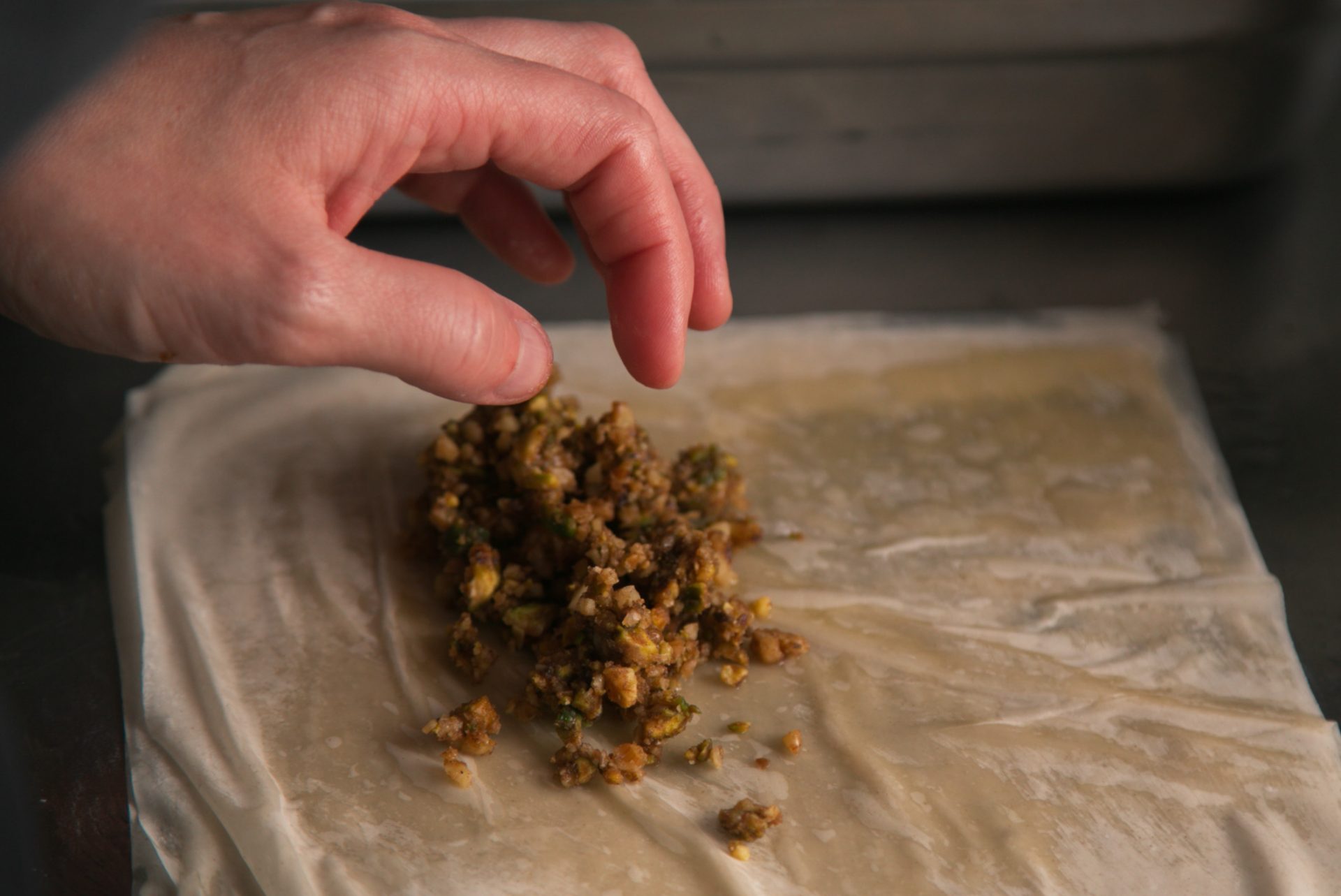
Just how similar her story is to other people in creative professions we can’t be totally sure, but it certainly resonated with us. With such a profound change in direction, we figured there must have been doubts and maybe even some regrets along the way. Not so in the case of Cora James.
“I’m pretty headstrong. Once I decide I’m going to do something, I really do give it my all, and it’s a positive and a negative in a way because it just means I’m also very hard on myself. Failure is never an option for me.”
Equipped with this determination, Cora went to George Brown College to learn to cook. But even with her desire, she was critical of her performance at school. “I wasn’t the best student. My teachers probably thought I wouldn’t do anything with my education afterwards…But I had the determination to succeed, and with practice, you get better, and if you want to succeed, you will succeed.”
And through that willingness to improve, her career has since taken her to many different places, including Bar Buca, Agora, Mamakas, as well as some seriously cool side projects (which we will get into later). Before her current position, Cora was at Bar Buca, where she found herself working in a very disciplined and intense work environment; one that required her to be up at 3am every day. And after 2 years of the demands of such a job, she felt she needed a bit of a break, and so she explored options that might offer a better work-life balance.
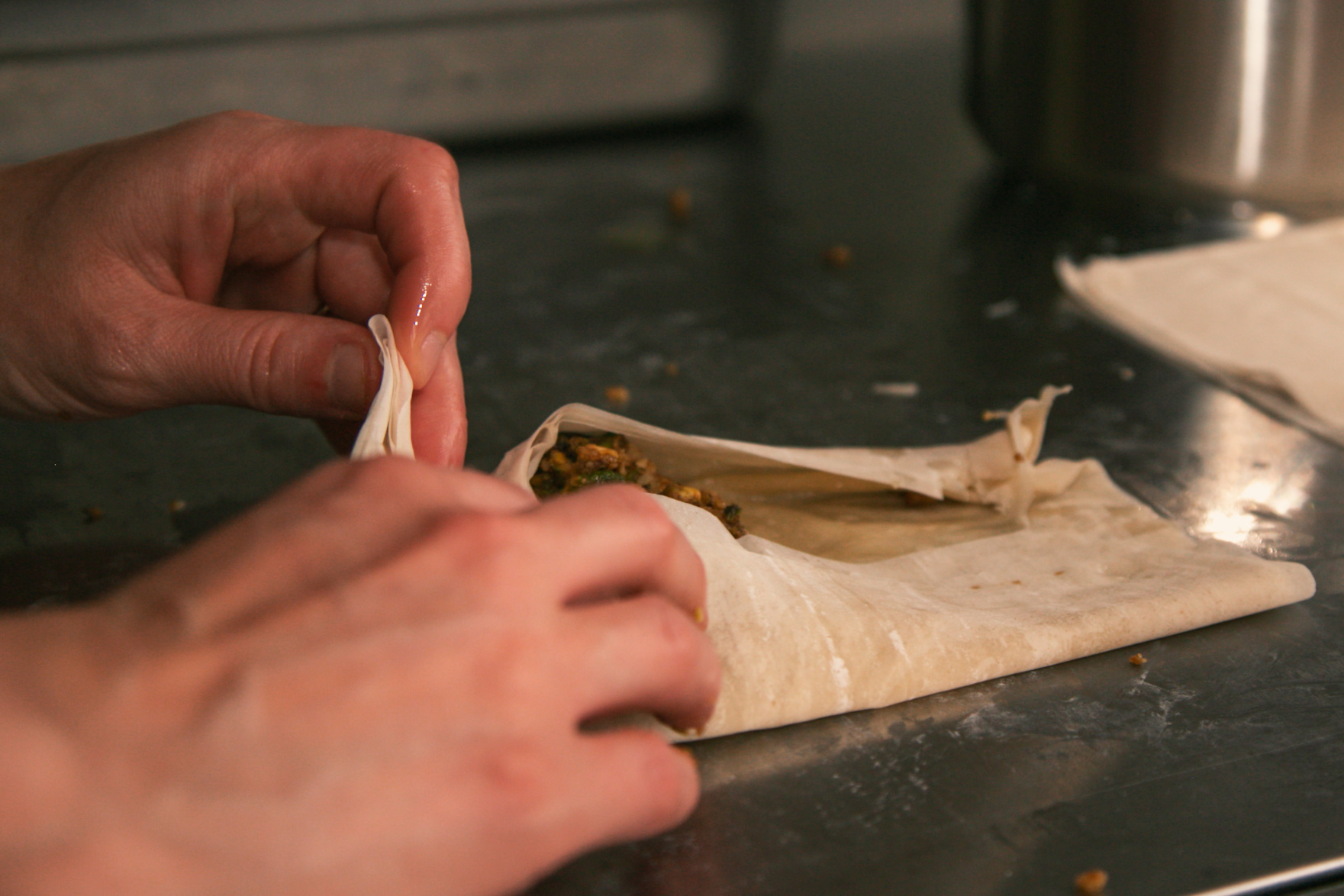
Then, along came Mamakas Taverna. Mamakas were offering great hours working with the team under Head Chef Chris Kalisperas. This was exactly what Cora wanted at the time, and she was trusted to do her own thing. She fell in love with Greek culture and everything about their food, and has now been with this company for 4 years. But even with this experience, she is still learning and relying on the team around her for inspiration when it comes to creating menus.
“I think I rely more on the people I work with than they rely on me, especially the Greek team members, just because I’m not Greek. But we do have a number of Greek chefs and cooks who work within the company, [and] I’m more relying on them to provide me with information or their food memories, what they like or what they don’t like about something specific related to Greek cuisine.”
So when she’s creating something new for Mamakas and Agora, Cora is sure to do plenty of research to stay sensitive to the Greek culture. But her creative process isn’t always so structured. “My thought process is very random,” she admitted. She gave an example of a time she once tried to create a dessert based on a photo of beach huts she saw in National Geographic. Other times, she told us, she simply raids her fridge and tries to find flavour pairings.
But it isn’t as though Cora can just cycle between these two creative ‘modes’, choosing either structured and researched, or random and fun. She often takes part in one-off events, like Taste of Toronto, where the deadlines are tight and the pressure is on. “[These are] definitely less random. Sometimes [they’re] even less creative, depending on the timeline and the volume you need to make. You are advertising for your business, so in a way you need to capture your brand and what you stand for…in a bite or two.”
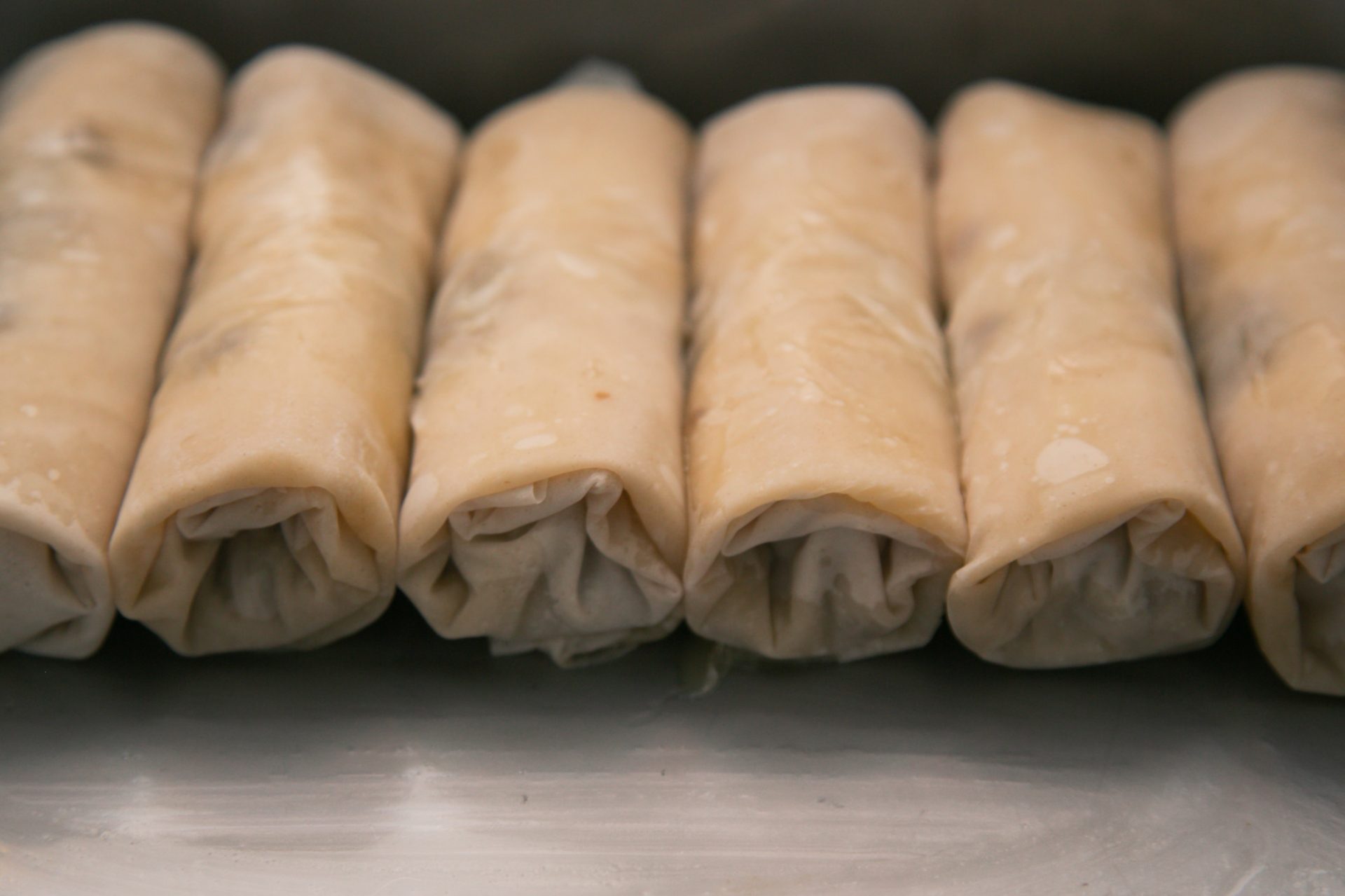
This got us thinking. Surely, with all of this trial and error and experimentation, there must have been flops. Without hesitation, she replied: “definitely. There are always failures”.
“Once, I was convinced that pie crust pastry cream would be a thing. I would make a pastry cream, and I would somehow thicken it with cooked pie crust dough…I would purée the whole thing, and it would taste like a pie crust and deconstructed pie on a plate. I just wanted it to work so badly, but in hindsight…it was not good.”
But then, of course, through the failures and the disappointments, there are glorious desserts that live long in the memory. For Cora, there is one dish that stands out in this regard as her proudest creation. “Butterscotch chip blondies for Museum Tavern. The best thing I have ever made. I had to make so many extra because everyone in the kitchen loved them.” Regrettably, we were never able to try any of these delights, but we’ll take Cora’s word for it.
What had become clear to us by now is that defining a creative process, and having the belief that something will work, takes a lot of time and some serious practice. Becoming proficient in this field certainly seems to require intense focus. But eager to find respite from this intensity, Cora has also found herself a job where that pressure to create is less intense, and this comes back to those cool projects we mentioned earlier.
Besides her work with Mamakas and Agora, Cora is also the Curator of Food in Film at Revue Cinema. Here, Cora puts together a series of films, and partners with chefs or restaurants, who create a snack inspired by their particular film screening.
How do you match snacks to a movie? We were wondering the same thing.
Firstly, she says, it’s important to choose movies that heavily feature food or restaurant life. She then tries to pick up on certain food cultures or food philosophies in the film, and approaches chefs or restaurants in the city that share a similar vibe. From there, creating the snack is entirely up to whoever she collaborates with.
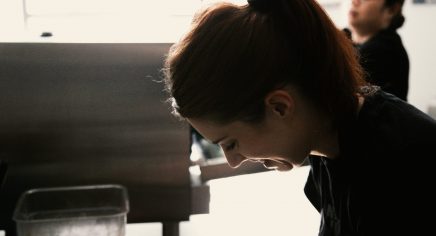
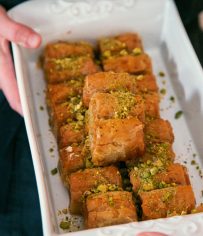
Other than sounding insanely fun, her work here allows a creative process that doesn’t come with as much pressure as, say, being an executive pastry chef. “As a pastry chef, you yourself are the artist. You’re responsible for the creation, execution, development, and vision behind a particular dish, and you can see that in many different ways…Whereas as a curator, I’m essentially curating an exhibit of other people’s art.”
Not only does she enjoy the work, but she delights in the fact she can sit and enjoy the creation with the audience at the end. “Unlike being a pastry chef, I actually get to sit there and consume the art myself along with the audience, and that’s such a great pleasure.”
Despite the fun and the more relaxed nature of the job with Revue Cinema, Cora refused to be drawn on whether she had a preference between her work in film and her work with Mamakas. Instead, we settled for an answer on her favourite part of her work in general.
“Dessert, regardless of whether it’s good or not, is going to make someone happy. So that’s my favourite part. That’s really my end goal. To make something that’s going to be delicious and make someone happy. In my opinion, that’s how I’d measure success…does this make someone happy?”
This answer, and her work at Revue Cinema, is a reflection of Cora’s approach to her work life, and of what she values in a work environment. “Have fun…produce good food, and take care of each other. I don’t think you can make delicious food if you’re not happy.”
We couldn’t have agreed more, and it seemed we may have tapped into part of Cora’s trove of wisdom. So we wanted to dig deeper and see what other golden pieces of advice she might have, in particular for anyone getting into a culinary career.
“Stay humble. Regardless of where you are in your stage of career, you’re always going to be learning. Even for myself, I don’t know it all. I don’t pretend to know it all. I also don’t think I’m necessarily better than the cooks that I employ. They too can teach me just like I can teach them. We all have something to give to one another.” Aspiring chefs take note. There’s hard work ahead.
And when it comes to humility, Cora practices what she preaches. Somewhat surprisingly for an executive pastry chef, she still isn’t quite used to being called ‘Chef’. In fact, being called ‘chef’ was one of the proudest moments of her career.
“I don’t have an inflated ego, I’m pretty chill and I’m not the sort of person to wear the monogrammed jacket or the fancy apron or tell people to call me ‘Chef’ because I’m your superior. I really believe that title comes with respect and you can’t command it. That respect comes naturally because of who you are and how you lead. He was a stage that I had, and he wanted to learn pastry from me. And the first time he came to stage with me he was like “Ok Chef, what can I do?” and I was like, “Me?!” So for me, that was a moment I was very proud [of].”
Now, as tempting as it was for us to leave this month’s issue on such a profound note around humility, and the need to stay grounded, we thought it was more fitting to end on another fact about Cora, just as revealing as the one we opened with. Given our interviewees proclivity for finding fun and light-heartedness for work, it only seemed right. So get ready to close this window in shock and disbelief at this final insight…
“I’ve been called the pastry chef who hates sugar. If you try a lot of my desserts, they’re not really sweet. I just don’t like a lot of sugar in the desserts I like to eat.”
Cora James does not like sweet desserts. We couldn’t believe it either.

